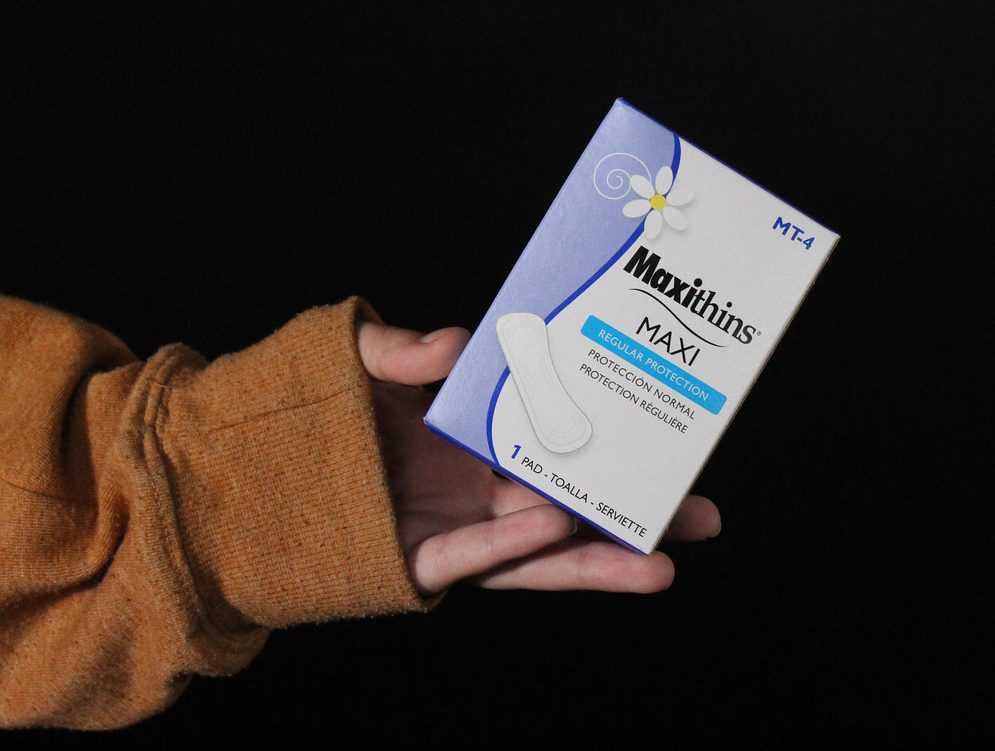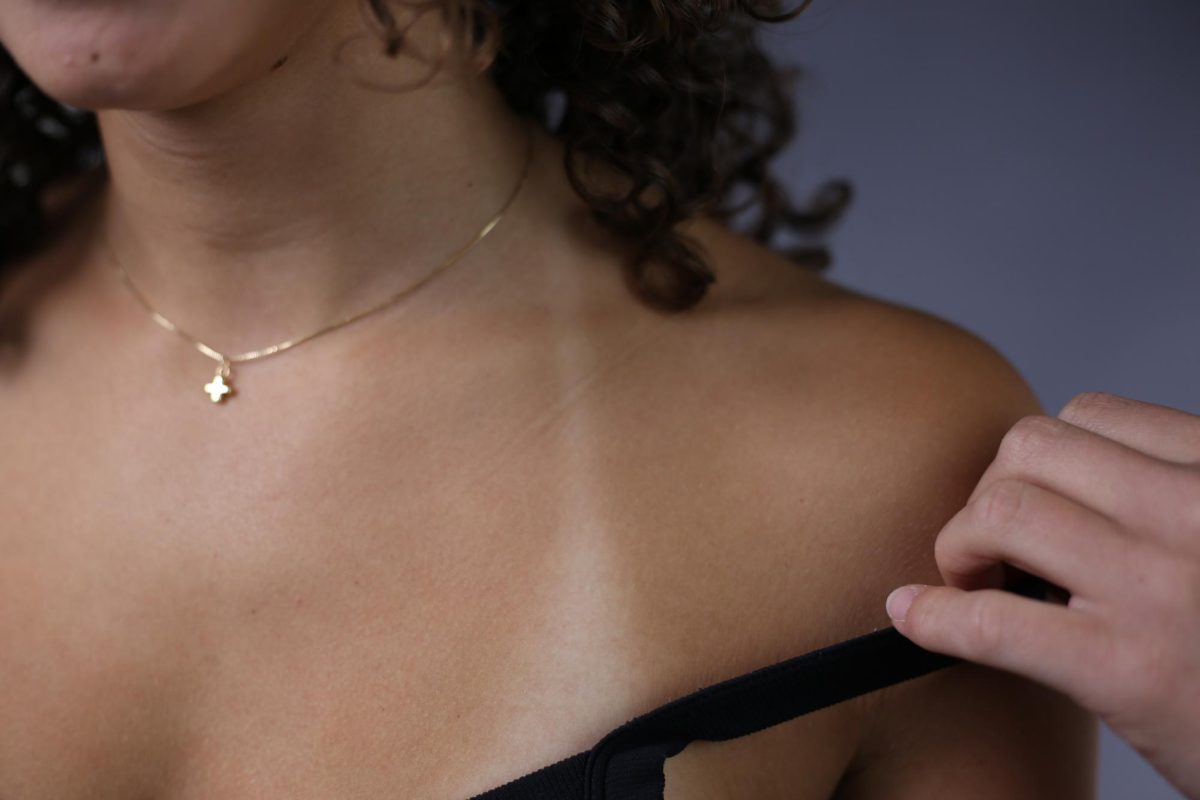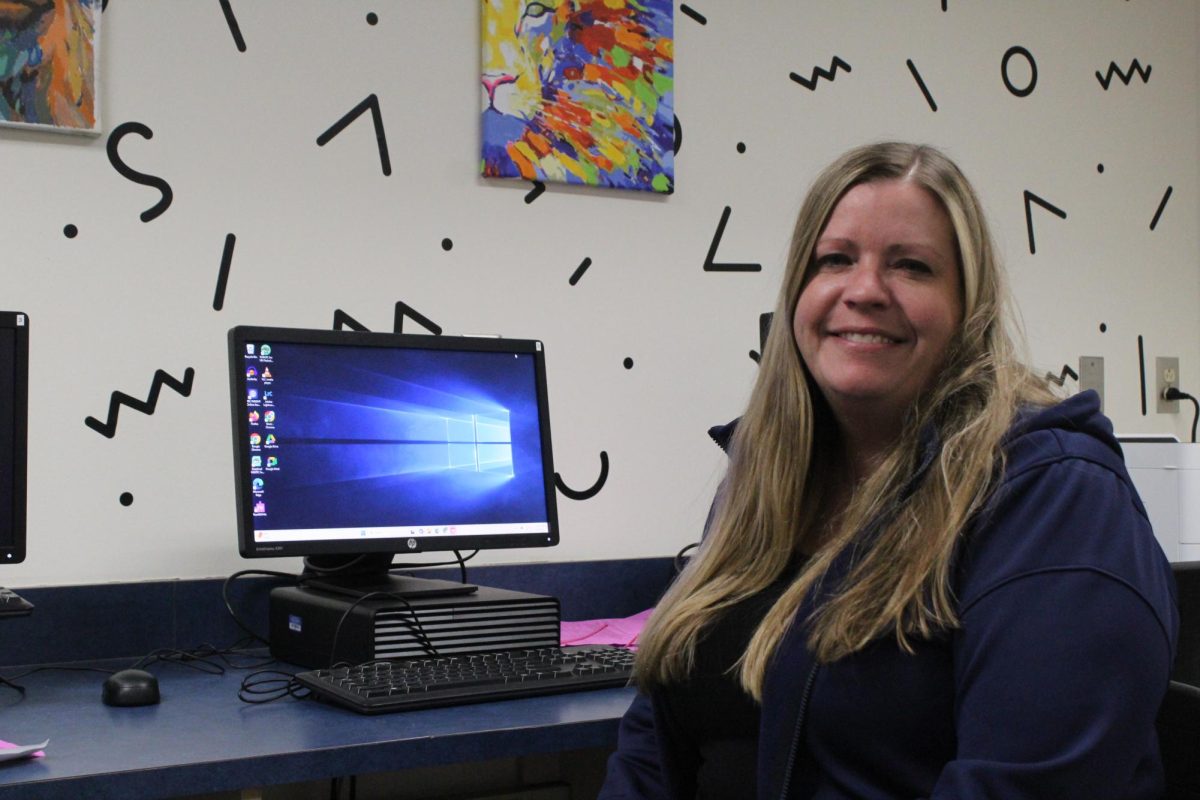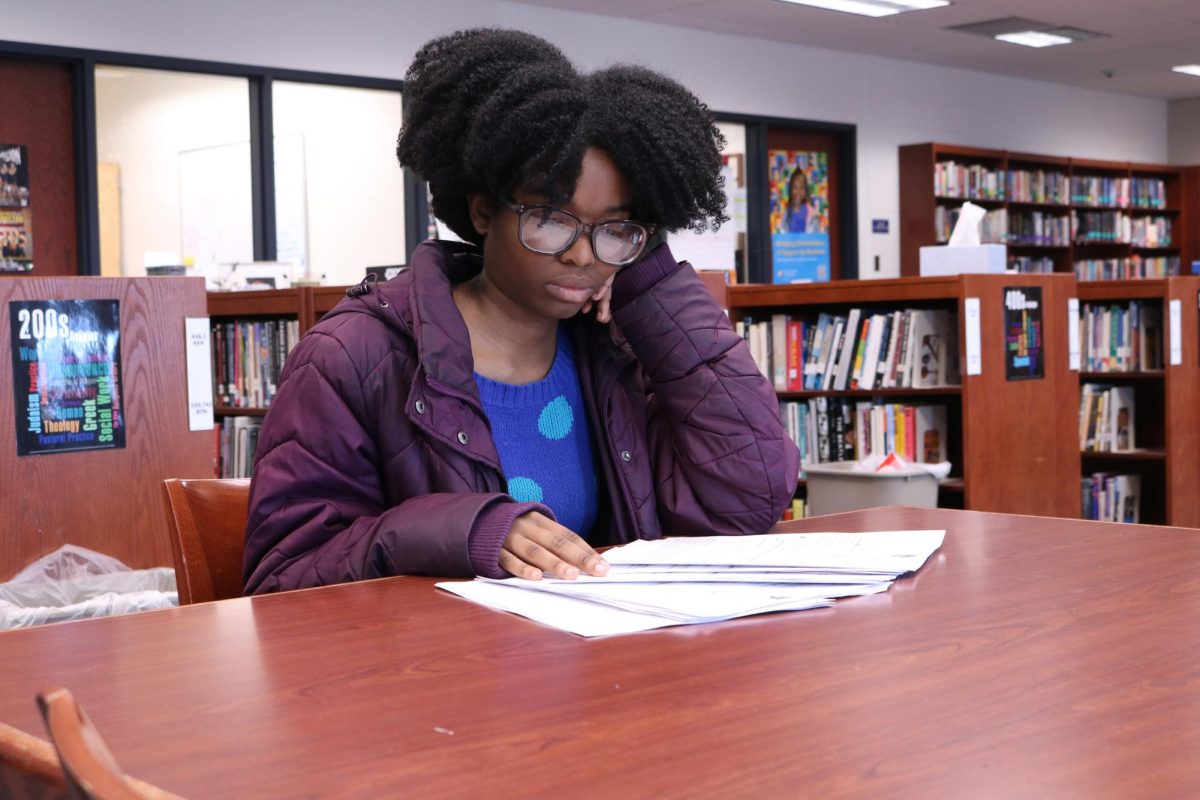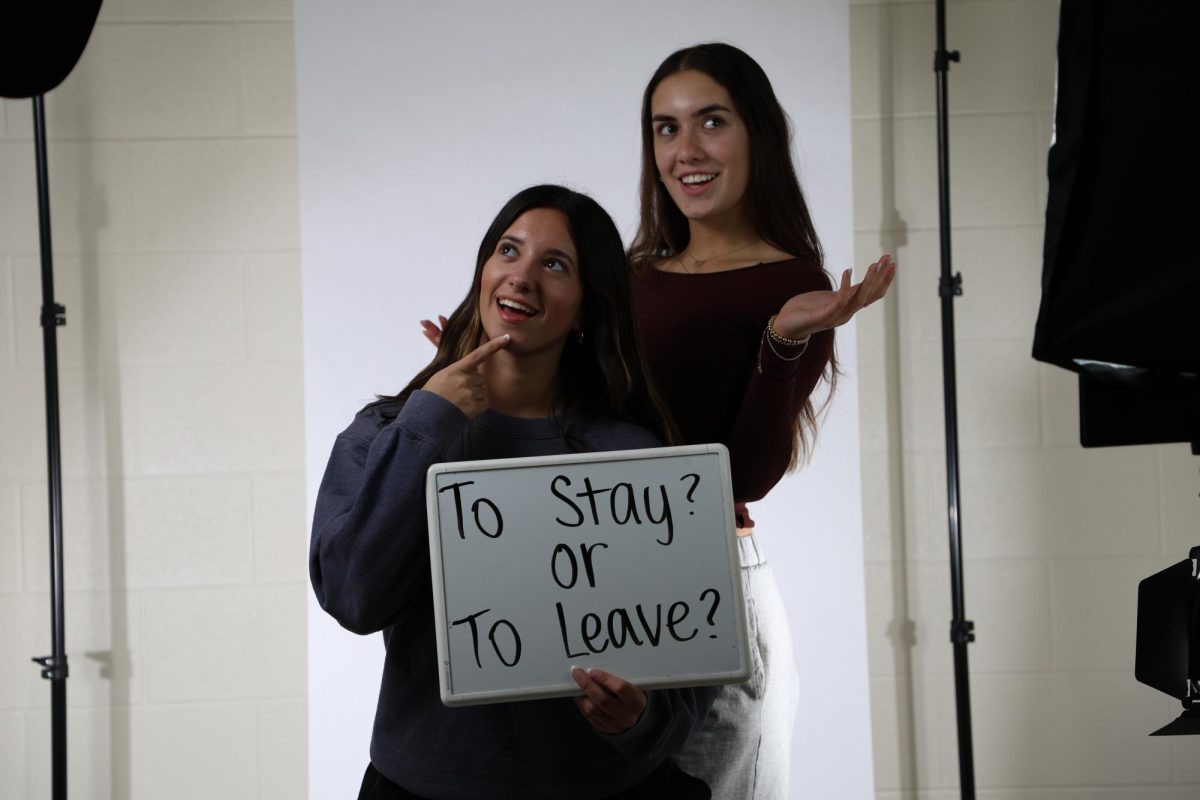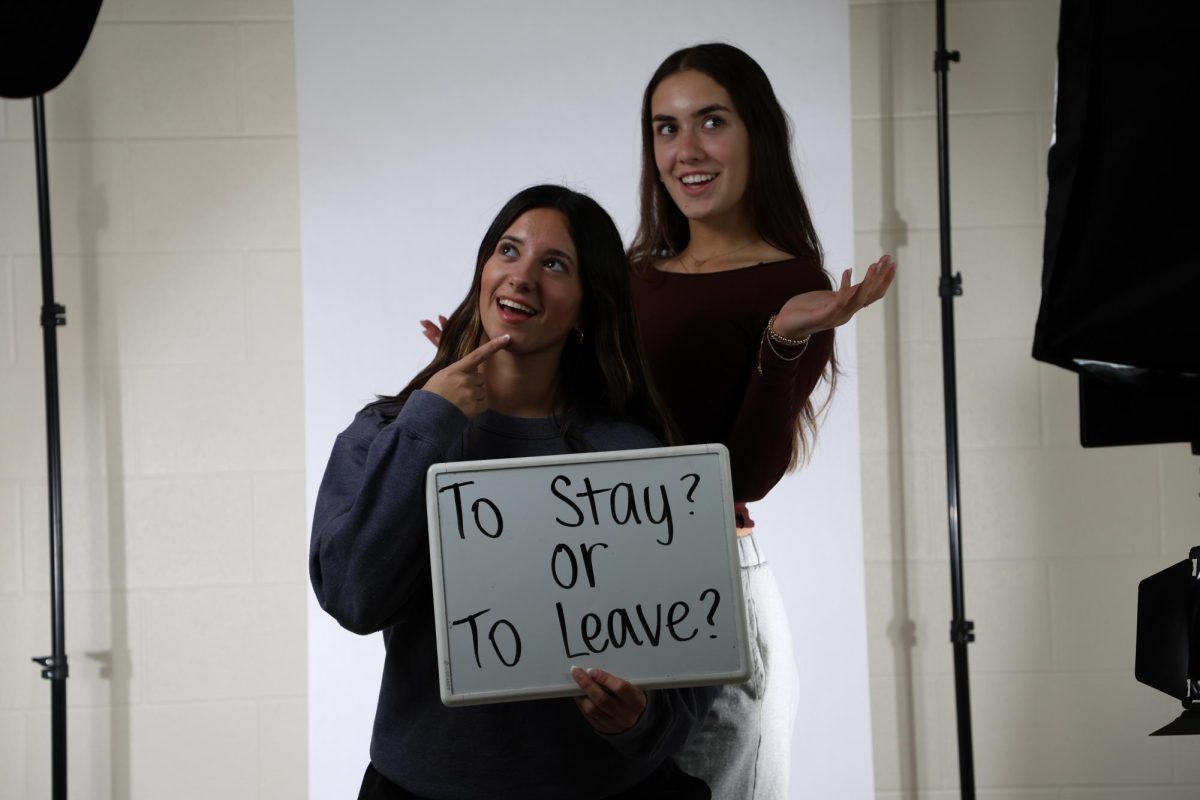When I was a sophomore, if you were on your period and forgot to bring period products, your only options were to ask a friend or go to the main office and ask for one. Although it was kind of the school to offer an abundance and variety of free pads and tampons, periods can still be a taboo topic for some girls. Personally, I would be embarrassed to go to the office and ask a stranger for period products, especially if there were male staff or students around.
There is also the time issue. Not everyone can make a trip to the office and a bathroom within the seven-minute passing period we’re given, especially if the next class we have to go to is across the school. Additionally, students shouldn’t have to cut into their already short lunchtime or their education because of their period.
Last year, if I was on my period and forgot to bring tampons, I would text my friend to bring me one. Unfortunately, I can’t do that this year due to the phone policy. If the period product dispensers are empty, students could find themselves at a loss of what to do.
Period products should be offered in all the bathrooms to ensure that every person with a period feels comfortable and has access to the hygienic products they need.
Last year, as a temporary solution, SGE (Students For Gender Equality) worked on getting period products in the bathroom last year. Co-presidents Alex Arnold (‘23) and Beatrice Carr (11) worked with Principal Ashley Schwarzbek to get dispensers with period products in the bathroom.
As of right now, there are dispensers in three of the bathrooms. The bathrooms the period products are located in are the girls one by the locker commons, the girl’s one downstairs by the lunchroom and one of the men’s bathrooms.
The current presidents of SGE, Carr, and Anna Dean (11), continue to care about the school offering free period products.
“Last year was a trial run, so we got sort of like base products but obviously we would like to expand on that at some point,” Dean said. “Period products still aren’t even in all the bathrooms in the school, which is also something that we’re going to work on.”
In the bathroom, they usually have cardboard applicator tampons and thin pads. The cardboard applicator tampons have pros and cons. The cardboard is better for the environment than the usual plastic applicators, however, the cardboard can hurt badly when being put in, and being on your period is already painful enough. We don’t need to cause more discomfort. The plastic applicators are also the most common type of tampon in America, and what most people with periods are used to, and comfortable with.
“So we have to talk about how we would work to make these nicer quality but also still, good for the environment because we don’t want plastic to be littered around our school or like not being recycled the right way,” Dean said.
I encourage the school to offer plastic applicators in the bathrooms instead of cardboard. Many people who use plastic tampons find the applicators to be easier to use if you’re already in a time crunch and in pain.
The other type of period product offered in the bathrooms is a pad. The pad is relatively thin, which is an issue because many people need something heavier or they could bleed through their pants. Period products don’t work as one size fits all, and if the pad won’t work for someone they might be hesitant or refuse to use a tampon. People can be turned off of tampons because of the health risks they can cause. Tampons can be dangerous to leave in for longer than eight hours. Doing so can cause Toxic Shock Syndrome that can lead to an infection, or on the more extreme side, cause death. The FDA (Food and Drug Administration) recommends changing your tampon every four to eight hours to stay safe.
Ideally, our administration would offer a variety of period products in the bathroom to accommodate everyone’s needs because as people with periods know they are different for everybody, and can vary on a daily basis.
As we grow as a society, more and more schools have started offering free period products to their students. I hope that we continue this trend and continue to provide hygienic products to students.
When mentioning free period products, a counter-argument I’ve heard is that there will be immature students that steal the period products for fun. If the school keeps seeing the products go to waste, they will be discouraged from wanting to provide them which will only harm the people that need them. I encourage students to make decisions that benefit your community and not be the reason why your peers can’t have the hygienic products they need. These minor setbacks that happen with trying something new will help create a better future for the students that have periods.
As a solution, I hope that period products are added to more of the bathrooms including the boys and unisex bathrooms, so that everyone that needs period products will have access to them. I also hope we change from cardboard applicators to plastic. Doing this could help make sure every student can thrive academically, even when they’re on their period.



